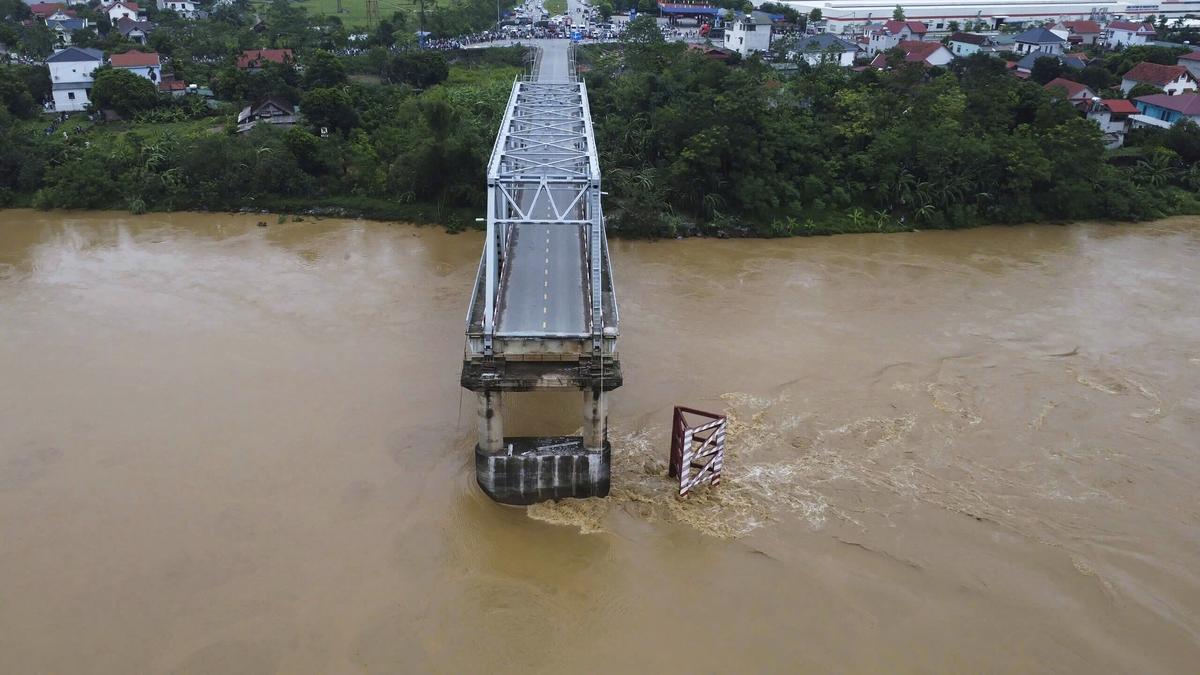
Bridge collapses owing to heavy rains in Vietnam; no casualties reported
The Hindu
Typhoon Yagi aftermath in Vietnam: bridge collapse, landslides, floods, power outages, and 21 deaths reported.
“A bridge collapsed on Monday (September 9, 2024) as more rain fell on northern Vietnam from a former typhoon that caused landslides, flooding, power outages and at least 21 deaths,” state media reported.
“The busy steel bridge over the engorged Red River in Phu Tho province collapsed on Monday morning,” local officials told state media. “Several motorbikes and cars fell into the river,” the initial reports said, adding that three people fished out of the river during the ongoing rescue operations have been taken to the hospital. No casualties have yet been reported.
Typhoon Yagi was the strongest typhoon to hit Vietnam in decades when it made landfall on Saturday (September 7, 2024) with winds up to 149 kph. It weakened to a tropical depression on Sunday (September 8, 2024), but the country's meteorological agency has still warned the continuing downpours could cause floods and landslides.
On Sunday, a landslide killed six people including an infant and injured nine others in Sa Pa town, a popular trekking base known for its terraced rice fields and mountains. Overall, state media reported 21 deaths and at least 299 people injured from the weekend.
Skies were overcast in the capital, Hanoi, with occasional rain on Monday as workers cleared the uprooted trees, fallen billboards and toppled electricity poles. Heavy rain continued in northwestern Vietnam and forecasters said it could exceed 40 centimetres in places.
Initially, at least three million people were left without electricity in Quang Ninh and Haiphong provinces, and it's unclear how much has been restored. The two provinces are industrial hubs, housing many factories that export goods including EV maker VinFast and Apple suppliers Pegatrong and USI.
Factory workers told The Associated Press on Sunday (September 8, 2024) that many industrial parks were inundated and the roofs of many factories had been blown away.


















